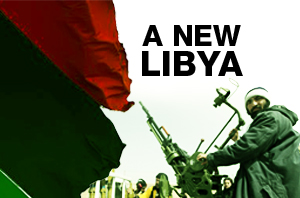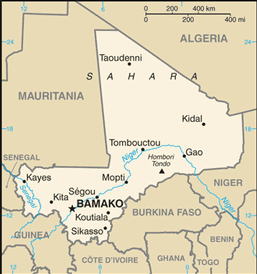http://www.aljazeera.com/news/africa/2012/03/2012331142118629552.html
| Scores dead in southern Libya tribal clashes | |||||||||||||
Sixteen killed in Sabha in latest fighting between Toubou and Arab tribes that has claimed 147 lives in past week. Last Modified: 01 Apr 2012 07:28 | |||||||||||||
At least 16 people were killed in clashes on Saturday in the southern Libyan desert oasis of Sabha, after a ceasefire brokered the previous day fell apart. The fighting first erupted on Monday after Arab tribespeople accused the Toubou of killing one of their people. More than 395 people have been injured throughout the week, Abdurrahim El Keib, Libya's interim prime minister, said on Saturday afternoon in Tripoli, the capital. He said that the transitional government hoped a new ceasefire would be reached soon. Al Jazeera's Omar Alsaleh, who attended the press conference in Tripoli, said: "The defense minister said they had established an emergency military command operation in Sabha. They took control of the airport, as well as other important government buildings." A doctor at Sabha hospital, treating Arab casualties, said eight people were killed and another 50 wounded in fighting between early Saturday morning and noon. "We haven't slept since yesterday. The Toubou have been attacking Sabha since three in the morning, and they very nearly took the city. Al the residents have taken up arms to defend it," Dr Abdelrahman al-Arish said.
"We have respected a truce and we want reconciliation, but the other tribes, especially the Awled Suleiman, have not stopped attacking us for several days. We have been deprived of both water and power." On Friday, Toubou chief Issa Abdel Majid Mansur, a one-time opposition activist against the former government of Muammar Gaddafi, called for international intervention to halt what he called "ethnic cleansing". "We demand that the United Nations and European Union intervene to stop the ethnic cleansing of the Toubou," Mansur said. Like most of Libya's remote desert communities, tribes living side by side in the oasis of Sabha, more than 600km south of Tripoli, have a history of rivalry. The fighting in Sabha resembles an earlier outbreak of inter-tribal violence in February in the oasis of Kufra, over 900km to the east. In both places, the clashes pitted Arab tribes that reportedly had close connections to the late Gaddafi against the Touboue, who are considered close to the rebels that overthrew him.
and....
|








Tidak ada komentar:
Posting Komentar